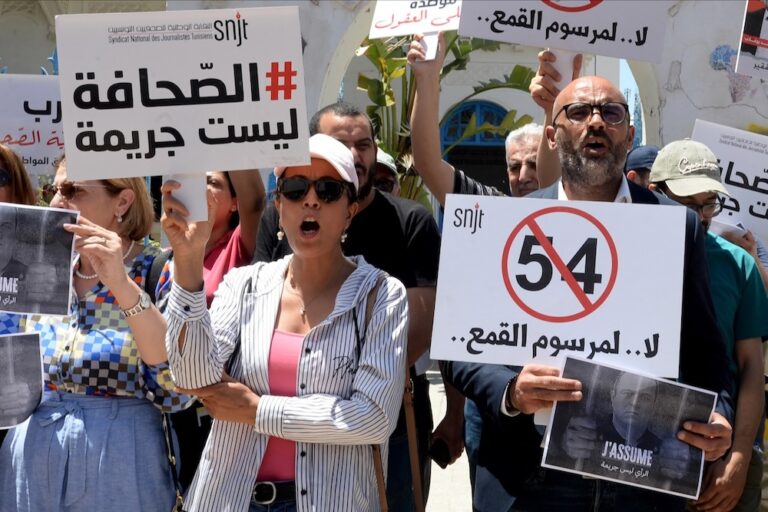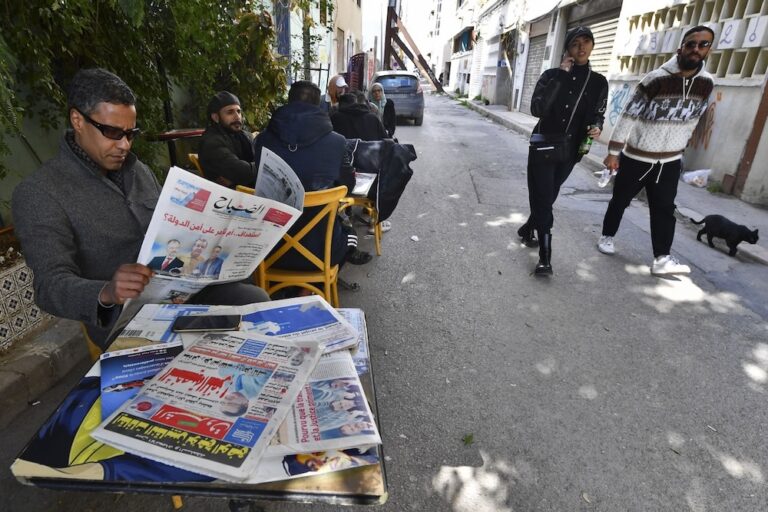ARTICLE 19 and its partners are concerned about attempts to undermine the independence of HAICA and interrupt the regulatory process, particularly from various parties involved in the audio-visual sector. HAICA should play a crucial role in ensuring a transparent and neutral coverage of the next electoral process.
ARTICLE 19, BBC Media Action, Community Media Solutions (CMS), The Euro -Mediterranean Foundation for Support to Human Rights Defenders (EMHRN), International Media Support (IMS), Reporters Without Borders (RSF), the Hirondelle Foundation, Civil Coalition for the Defence of Freedom of Expression, the ‘Vigilance’ Association for Democracy and Civil Status , the Tunisian Union of Free Radios (STRL), and the Tunisian League for Human Rights (LTDH) express their support for the Independent High Authority for Audio-visual Communication (HAICA) and reiterate their full support to efforts to regulate the audio-visual scene , in order to ensure the independence, pluralism and diversity of the media in Tunisia.
“We regret that HAICA, which is a fundamental asset for Tunisia in this phase of democratic transition, remains the target of attacks aimed at curbing its regulatory role,” said Thomas Hughes, Executive Director of ARTICLE 19.
ARTICLE 19 and its partners consider that the publication of specifications for private radio and community television is a first step towards the proper regulation of the audio-visual sector in Tunisia.
While several clauses of the terms of reference for HAICA are problematic, we call on all stakeholders to unify efforts to preserve the independent regulatory body, and protect its policies and economic interests. It is important to continue the process of consultation and dialogue, committed to at the establishment of HAICA and during the preparatory phase of the new terms of reference.
It is crucial for the democratic stabilisation of the country that people have access to diverse and pluralistic information, including through the media.
ARTICLE 19 and its partners are concerned about attempts to undermine the independence of HAICA and interrupt the regulatory process, particularly from various parties involved in the audio-visual sector. HAICA should play a crucial role in ensuring a transparent and neutral coverage of the next electoral process.


